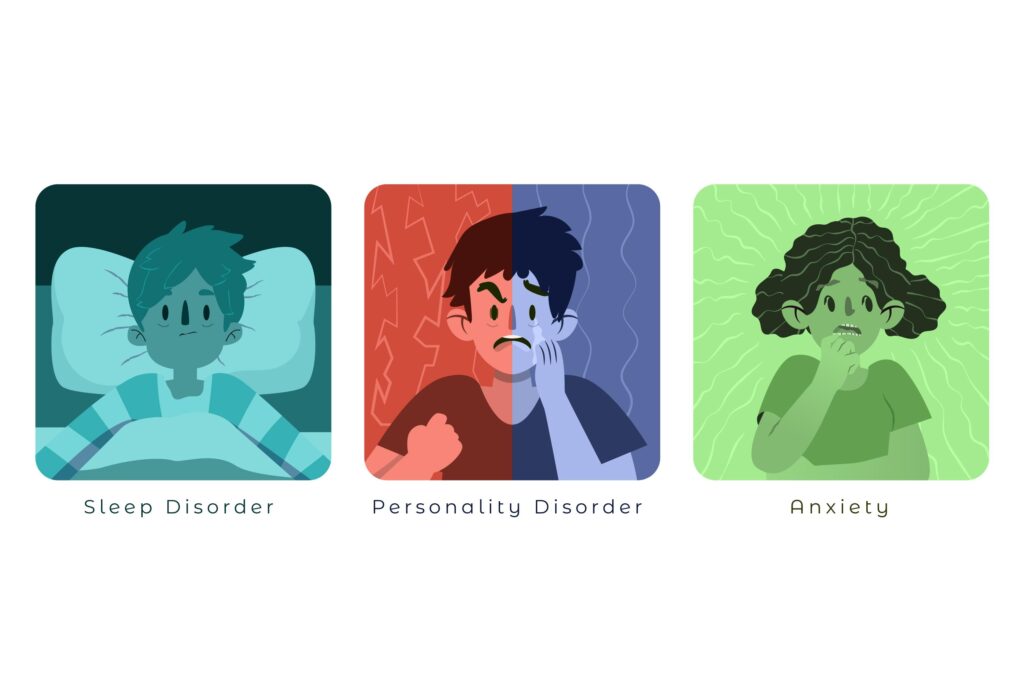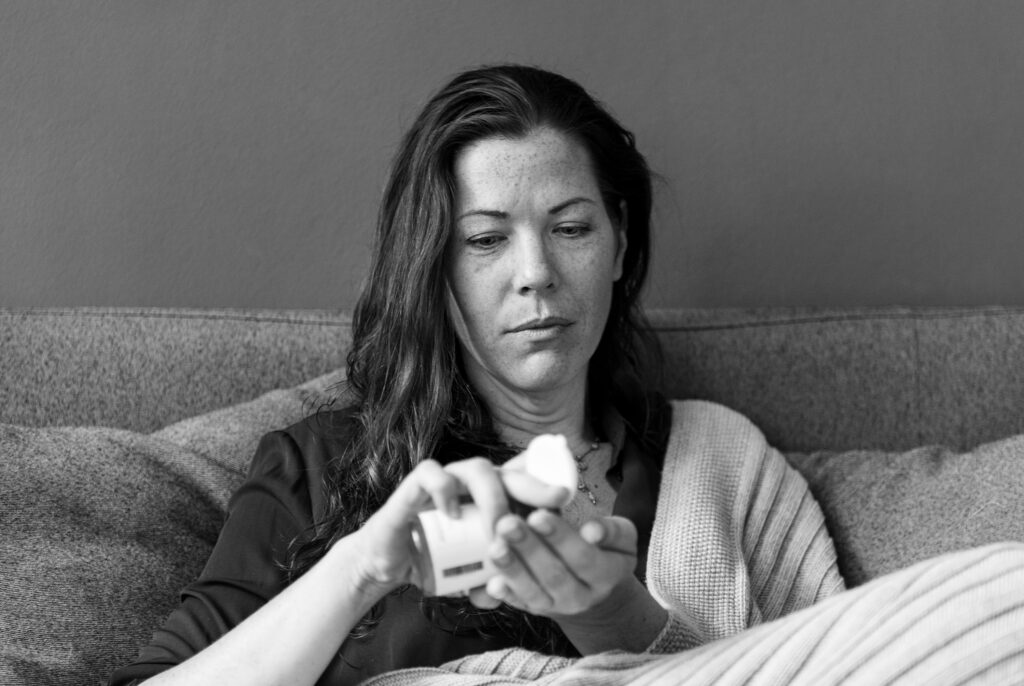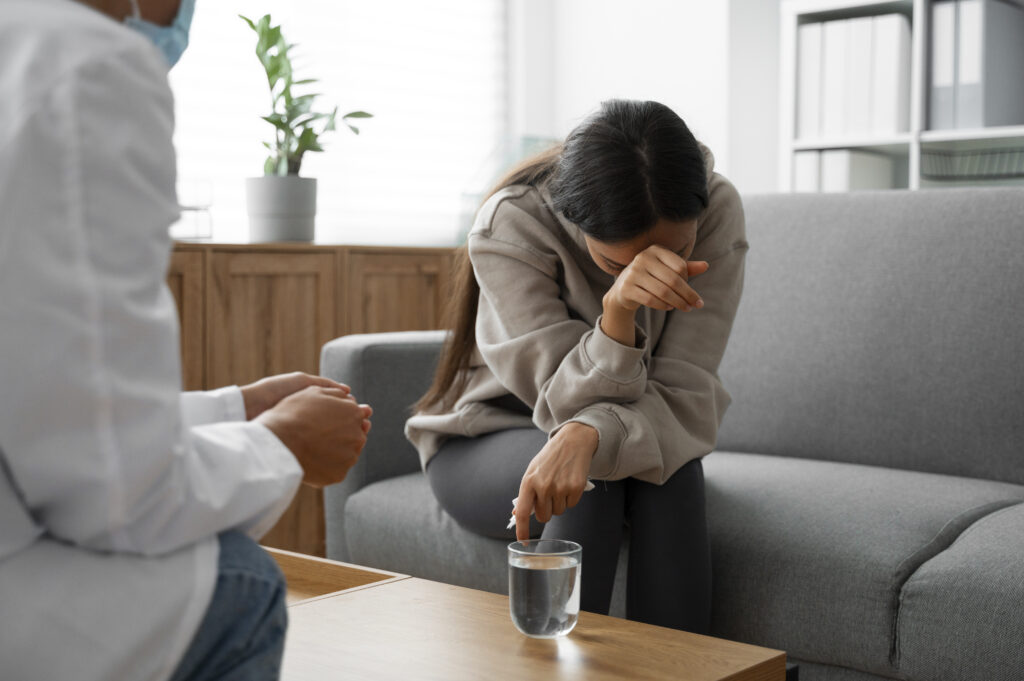Mental health is as critical to well-being as physical health, yet mental illnesses remain widely misunderstood. With millions impacted globally, it’s essential to understand the different types of mental health conditions, their symptoms, and the treatment options available. In this guide, we’ll cover the 20 most common mental illnesses, shedding light on each one to help increase awareness and provide guidance on seeking help. If you or someone you know is struggling, remember there is help available, like at Lifeline Hospital, Adoor—the top clinical psychology hospital in Kerala.
1. Major Depressive Disorder (MDD)
Major Depressive Disorder, or clinical depression, is characterized by a persistent feeling of sadness, hopelessness, and a lack of interest in life. It affects sleep, energy levels, appetite, and daily activities. Treatment options include therapy, medication, and lifestyle changes.
2. Generalized Anxiety Disorder (GAD)
Generalized Anxiety Disorder involves excessive and uncontrollable worry about various aspects of life. People with GAD often feel anxious most days, leading to difficulties in concentration and sleep disturbances. Effective treatments include cognitive-behavioral therapy (CBT) and anti-anxiety medications.
3. Bipolar Disorder
Bipolar Disorder causes extreme mood swings, from manic highs to depressive lows. During manic phases, individuals feel euphoric and highly energized, while depressive phases bring sadness and fatigue. Treatment generally involves a combination of mood stabilizers, therapy, and lifestyle adjustments.
4. Obsessive-Compulsive Disorder (OCD)
OCD involves unwanted, recurring thoughts (obsessions) and repetitive behaviors (compulsions). People with OCD feel driven to perform these actions to reduce anxiety, but this often disrupts daily life. Treatment can include exposure therapy and selective serotonin reuptake inhibitors (SSRIs).
5. Post-Traumatic Stress Disorder (PTSD)
PTSD can develop after a person experiences or witnesses a traumatic event. Symptoms include flashbacks, nightmares, severe anxiety, and uncontrollable thoughts about the event. Treatment includes trauma-focused therapy and medications.
6. Social Anxiety Disorder
Social Anxiety Disorder is an intense fear of social situations and being judged or scrutinized by others. People may avoid social events, leading to isolation. Therapy, such as CBT, and anti-anxiety medications can help manage symptoms.
7. Schizophrenia
Schizophrenia is a severe mental disorder that affects how a person thinks, feels, and behaves. It often involves hallucinations, delusions, and disorganized thinking. Antipsychotic medications and support therapy are common treatments.

8. Attention-Deficit/Hyperactivity Disorder (ADHD)
ADHD is a neurodevelopmental disorder that causes inattention, hyperactivity, and impulsivity. It’s most commonly diagnosed in children but can persist into adulthood. Behavioral therapy and medication are primary treatments.
9. Panic Disorder
Panic Disorder is characterized by sudden, repeated panic attacks—a wave of intense fear without an obvious cause. Symptoms include chest pain, rapid heartbeat, and shortness of breath. Panic Disorder is commonly treated with therapy and medication.
10. Eating Disorders
Eating disorders like Anorexia Nervosa, Bulimia Nervosa, and Binge-Eating Disorder involve abnormal eating habits that negatively impact physical and mental health. Treatment options include nutritional guidance, therapy, and medication.
11. Borderline Personality Disorder (BPD)
BPD is a personality disorder marked by intense emotions, fear of abandonment, and impulsive behaviors. People with BPD often have unstable relationships and self-image. Dialectical behavior therapy (DBT) is one of the most effective treatments for BPD.
12. Phobias
Phobias are intense, irrational fears of specific objects, situations, or activities. Common phobias include fear of heights, spiders, or enclosed spaces. Exposure therapy and relaxation techniques can help manage phobias.
13. Seasonal Affective Disorder (SAD)
SAD is a type of depression related to seasonal changes, typically worsening in fall and winter due to reduced sunlight exposure. Light therapy and antidepressant medications are commonly used treatments.
14. Insomnia Disorder
Chronic insomnia involves difficulty falling asleep, staying asleep, or getting restful sleep. This condition impacts daytime function and overall health. Treatment may include cognitive-behavioral therapy for insomnia (CBT-I) and sleep hygiene practices.
15. Somatic Symptom Disorder
Somatic Symptom Disorder involves excessive focus on physical symptoms like pain or fatigue, causing significant distress and impairment. Cognitive-behavioral therapy (CBT) is often used to manage this condition.

16. Dissociative Identity Disorder (DID)
DID, previously known as multiple personality disorder, involves a person having two or more distinct identities. Treatment focuses on therapy to integrate these identities and manage trauma-related symptoms.
17. Oppositional Defiant Disorder (ODD)
Children commonly receive a diagnosis of ODD, marked by their defiant, hostile, and uncooperative behavior, especially towards authority figures. Family therapy and behavioral strategies are effective treatments.
18. Autism Spectrum Disorder (ASD)
ASD affects social interaction, communication, and behavior. People with the condition can experience symptoms ranging from mild to severe, often diagnosed during early childhood. Treatments include behavioral therapy, speech therapy, and social skills training.
19. Narcissistic Personality Disorder (NPD)
NPD involves an inflated sense of self-importance, need for admiration, and lack of empathy for others. Therapy, particularly psychodynamic therapy, can help individuals with NPD develop healthier self-esteem.
20. Substance Use Disorders
Substance Use Disorders involve addiction to drugs or alcohol, leading to physical and mental health issues. Treatment often includes detoxification, rehabilitation, and ongoing support groups.

Conclusion
If you or someone you know is dealing with any of these mental health challenges, don’t hesitate to seek help. Lifeline Hospital in Adoor, Kerala, offers comprehensive mental health services. Renowned for expert clinicians and personalized treatment plans, it helps patients achieve wellness and resilience. Contact Lifeline Hospital today for a confidential consultation and take the first step toward mental health recovery.
Frequently Asked Questions (FAQs)
1. What are the most common symptoms of mental illnesses?
Common symptoms include changes in mood, behavior, sleep, appetite, and energy levels. Individuals may also experience feelings of sadness, anxiety, fear, and difficulty in concentrating.
2. How are mental illnesses diagnosed?
Psychologists diagnose mental illnesses through psychological evaluations, patient history, and, in some cases, clinical testing. Professionals like psychologists and psychiatrists conduct these assessments.
3. Can mental illnesses be cured?
Therapy, medication, and support can effectively manage many mental illnesses, enabling individuals to lead fulfilling lives, even if they can’t be “cured” in the traditional sense.
4. What is the difference between a psychologist and a psychiatrist?
A psychologist primarily provides therapy and counseling, while a psychiatrist can prescribe medication and provides medical management of mental health conditions.
5. How can Lifeline Hospital, Adoor help with mental health treatment?
Lifeline Hospital offers specialized clinical psychology services, with a dedicated team to assess, diagnose, and treat various mental health conditions. Their individualized approach ensures that each patient receives the care and support they need.


